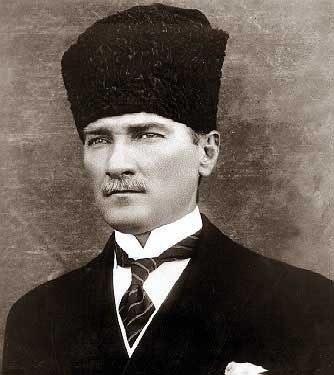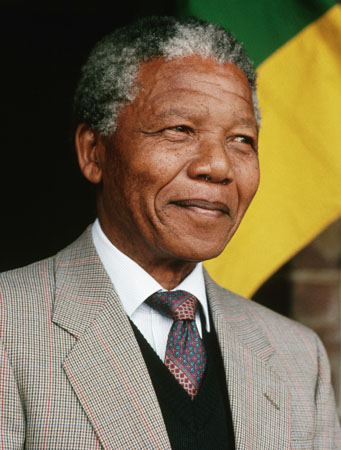Direct talks between Israel and the Palestinians will commence on September 2 in Washington, DC under the auspices of the United States. The aim of these negotiations will be to resolve all final-status issues and bring an end to the intractable Israeli-Palestinian conflict. There are long odds that the summit will actually meet its goals, but it is interesting to exam what a future Palestinian state would look like and how the Jewish State will be impacted.
Here are my recommendations for the resolution of final-status issues:
1. There Shall Be No Right For Palestinian Refugees To Return To Their Former Homes Within Israel-Proper.
If the Jewish State was to allow all Palestinian “refugees” into its borders after a final settlement it would be committing politicide. Millions and millions of Muslims would flood Israel and forever change its demographic balance. It would no longer be a Jewish nation and that would contradict the whole point of Israel engaging in these negotiations in the first place; which is to secure a Jewish State with defined borders that is democratic and secular.
There is moral justification for the right of return. Claims of ownership within Israel-proper are dubious at best and they can rarely be verified. Additionally, Arabs weren’t the only refugees in 1948 — 800,000 Jews had to flee their homes for fear of their lives, leaving all their invaluable belongings behind. By any logic, if the Palestinians are allowed to return to places within Israel, Jews should be able to go home to their property in the Muslim world. What happened in 1948 wasn’t a displacement of a people, it was a population exchange of Jews and Arabs. And any final settlement must acknowledge this.
The only reason the Palestinians are still refugees in Lebanon, Syria, Egypt and throughout the region is because rather than ease their plight, Arabs leaders have preferred to use their cause as a cudgel against Israel . The Jewish State assimilated its immigrants, the Arabs haven’t.
It is only because of pragmatic political concerns that Israel should offer these refugees a compensation package, which should total up to $30 billion, an amount proposed in 2000 during the almost-successful negotiations at Camp David. In return, these Palestinians should renounce the claims they and their children have made on property within Israel-proper.

(above) Maaborot in the early 1950s.
2. All of Jerusalem shall remain a pat of the Jewish State and all people — Jews, Christians, and Muslims — shall have access to holy sites.
Jerusalem is the center of the Jewish religion and state, and it is the home to the Western Wall, which is the most sacred shrine of Judaism. It also hosts the Mount of Olives, holy to Christians, and the al-Aqsa Mosque, the third-most important place of worship in Islam. Under Israel, all three major religions have had access to their holy sites. However, before 1967, when the Jordanians ruled the city’s eastern half, Christians and Jews were denied access to the Mount of Olives and the Western Wall, and the Arabs desecrated Jewish places of worship.
In 1967, after the Six-Day War, the Jewish State took control of all Jerusalem, an event commemorated by the Israeli holiday of Yom Yerushalayim. All were free to pray as they pleased, and the slums of eastern Jerusalem evolved into prosperity. With this history in mind, all of Jerusalem should remain under Israeli sovereignty. With that in mind, Palestinians should be allowed authority over Muslim holy places and they should be permitted to hold their Parliament and base their governmental functions inside the city.
3. Israel shall annex settlements that are close to pre-1967 borders and Palestinians will be compensated by land from Israel-proper.
Following the Six-Day War, Israelis settled in the West Bank, to the east of the pre-1967 borders. Today, over 300,000 Jews live in Judea and Samaria, most of them in neighborhoods miles from the Green Line. These settlements would probably be annexed by Israel in any resolution of the Israeli-Palestinian conflict.
Just as there are many Jews in the West Bank, there is a sizable Arab population within Israel. These Israeli-Arabs constitute a demographic threat to the Jewish State, which is already 25% non-Jewish. For settlements in the West Bank that are close to the Green Line, Israel should exchange land from within Israel-proper, particularly from the north, in Galilee, which have large numbers of Arabs. This land swap would make both Israel and a future Palestinian state as ethnically homogeneous as possible, and thus maximize the chance for peace

(above) The Galilee, in Northern Israel, which has a large Arab population.
4. The Palestinian state will be demilitarized and Israel will retain a security presence in the Jordan Valley to protect water resources and patrol the international border.
Any Palestinian state has to be demilitarized. Israel cannot have Arab armies a day’s march from Tel Aviv and Jerusalem. Like Japan after World War II, Palestine should only be allowed to have a small military force, whose mission is solely a defensive one. To ensure Israel’s security, international peace-keeping forces should man the international border between the West Bank and Jordan, inspecting cargo going to and fro Palestine and preventing the spread of weaponry. To maintain its economic prosperity and to procure the natural resources it needs, the Jewish State should be allowed to continue to draw water from the Jordan River, as it faces a chronic shortage of H2O.






















